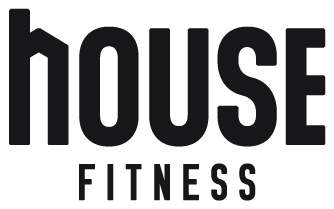The 5 Most Effective Ways to Lose Weight Over 50
JULY 15, 2021
The 5 Most Effective Ways to Lose Weight Over 50
Losing weight becomes harder as we age, but there are actions we can take to make it easier.
By House Fitness
It's no secret that losing weight becomes harder as we age.
Physiologically, our metabolism slows down, our bodies cannot heal as fast due to our maximum heart rate decreasing, and one’s ability to breathe optimally becomes challenging. Less elasticity in our tendons and ligaments also limits our range of motion which directly impacts the stress we put on our joints during exercise. In general, we become more prone to injury because of a decrease in muscle and bone mass which leads to poorer flexibility, coordination, and overall physical capability.
But, trust me when I say a little dedication and mindfulness can go a long way.
Whatever your current concerns may be and wherever you may fall in the over-50 age bracket, you still have the chance to become the fittest you’ve ever been in your entire life. You just have to get started.
In helping you to take your first steps, here are our five more effective ways to lose weight over 50 years old.
1
Consume Enough Calories
Are you consuming fewer calories in an effort to lose weight? Though it is important to be in a calorie deficit in order to lose weight, you may actually be not consuming enough calories to begin with. You need calories not only to maintain and build muscle, but for all the regular functions and processes of your brain and organs.
Take note of how many calories you are consuming. If you are feeling lethargic and unmotivated to workout, chances are you may not be consuming enough calories. In addition, take a look at the type of calories you’re consuming. Are you consuming ‘quick food’ or takeout? It’s not just about the amount of calories, but the quality of them. And remember: there’s a balance to being in a calorie deficit. Eating too little can cause major fatigue and actually lower your metabolism. You have to manage your calorie intake and work out to truly lose weight.
2
Consume More Protein
Even if you are consuming enough calories, you still may not be getting enough nutrients. As we get older, our bodies become less efficient at absorbing protein. And without enough protein, we are not able to sustain muscle growth and weight loss. Nutrient deficiency will cause you to have less energy and be more likely to fall into a sedentary lifestyle.
Add more protein to your meals. It’s time to re-analyze your diet. Do you have a nutrient-dense diet or simply a calorie-dense one? How many of the calories you are consuming are protein? For the aging population, Precision Nutrition recommends ensuring that you are consuming at least a “fist-sized” serving of protein at every meal. This recommendation increases as your activity level increases, if your stature is larger than normal, or if you are a man.
To increase your protein intake, try to add a form of protein to every meal. Eggs, meat, nuts, cheese, fish, grains, or even in the form of protein powder or supplements. If possible, aim to eat from organic sources of food.
3
Stress Less
Stress management is very important. Stress affects literally every aspect of your being. Stress can contribute to a multitude of health problems from heart disease to anxiety and depression. Chronic stress can cause the breakdown of tissues like bone and muscle. It impacts your digestive system, immune system, respiratory and cardiovascular systems — there is not one system it doesn’t impact.
Engage in less stress-reducing activities. Mindfulness practices such as meditating, yoga, journaling, and simply making space for yourself throughout your day can all have a major impact on your mindset and stress levels. If you’re always on the go and never slowing down, you’re not giving yourself enough time to breathe and disengage. When you notice you are experiencing stress, take note. Many of us have deeply ingrained habits during moments of stress that we may not even be conscious of. This can be a skill you hone in order to differentiate what contributes to your stress vs. what does not.
Diet-wise, consider lowering your sugar and caffeine consumption.
4
Sleep Better
Sleep is critical to recovery and optimization. If you’re not sleeping enough, you’re not going to feel as good throughout the day and your body will be less efficient.
Set yourself up for success to get a better night’s rest. It is easy to say, ‘sleep more,’ but a lot harder to do in practice. What we can do, however, is do our best to set ourselves up for success when it comes to sleep. 1) Try to not consume caffeine in the afternoon onward. Studies have shown that there can be up to 25% caffeine in our system up to 12 hours after consumption. 2) Don’t look at any screens an hour before you go to bed. And 3) Don’t engage in any high-stress activities as you wind down for the night. The best thing we can do for ourselves is to create a nighttime routine. By engaging in the same routine every night, we are signaling to our body that we are getting ready for sleep. When we do this, our brain produces melatonin, a hormone that helps with our natural sleep-wake cycle.
5
Have a Well-Rounded Workout Routine
There is a misconception that we should not focus on certain aspects of training in order to avoid injury, such as strength work. This is false. We need all aspects of training at any age. Though mobility becomes more important as we age, we cannot let other aspects of our routine fall by the wayside.
Focus on all aspects of training regardless of age. Set mobility as the focal point in your training but do not disclude strength and endurance. Maintaining a healthy range of motion in our joints as we age is key to reducing joint stiffness and potential injury. Practicing mobility daily would be most optimal, but even including a practice of 3-4 times a week could massively improve your overall fitness — just don’t forget to include strength and endurance throughout!
Losing Weight Over 50 Doesn't Have to be Hard
We just need to know what the obstacles are so we can take the correct actions in addressing them. Once we have the right pieces in place, it’s just a matter of putting one foot in front of the other and we’ll begin to see progress.
There’s always hope. Don’t give up.
If you are over 50 and are struggling to lose weight consider signing up for our Forever Young Program.
We can assist you in reaching your goals!






